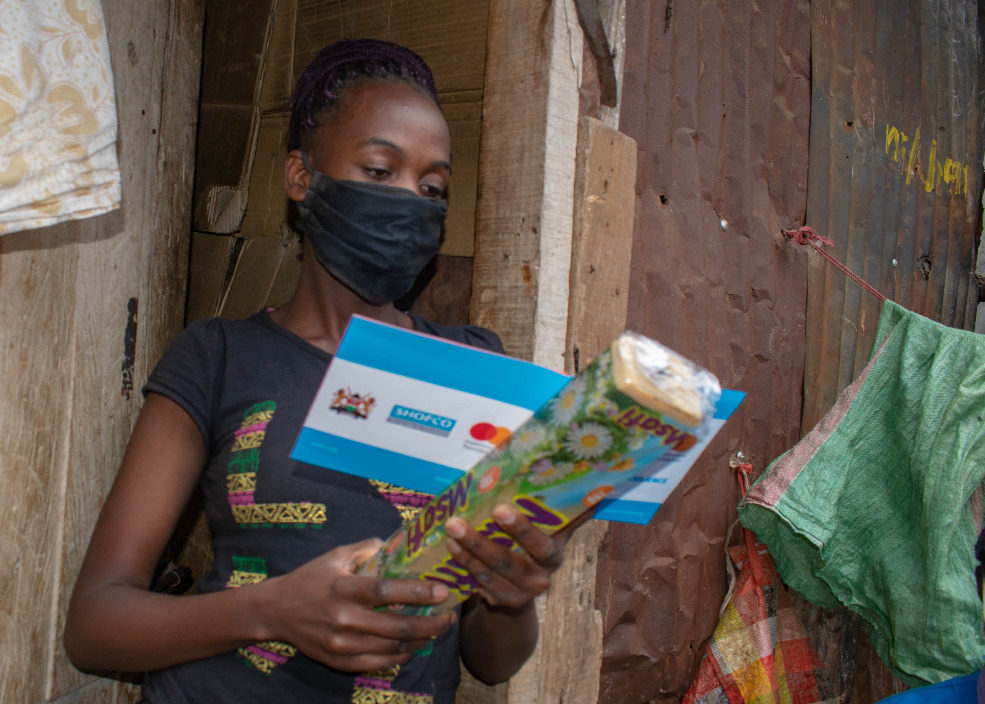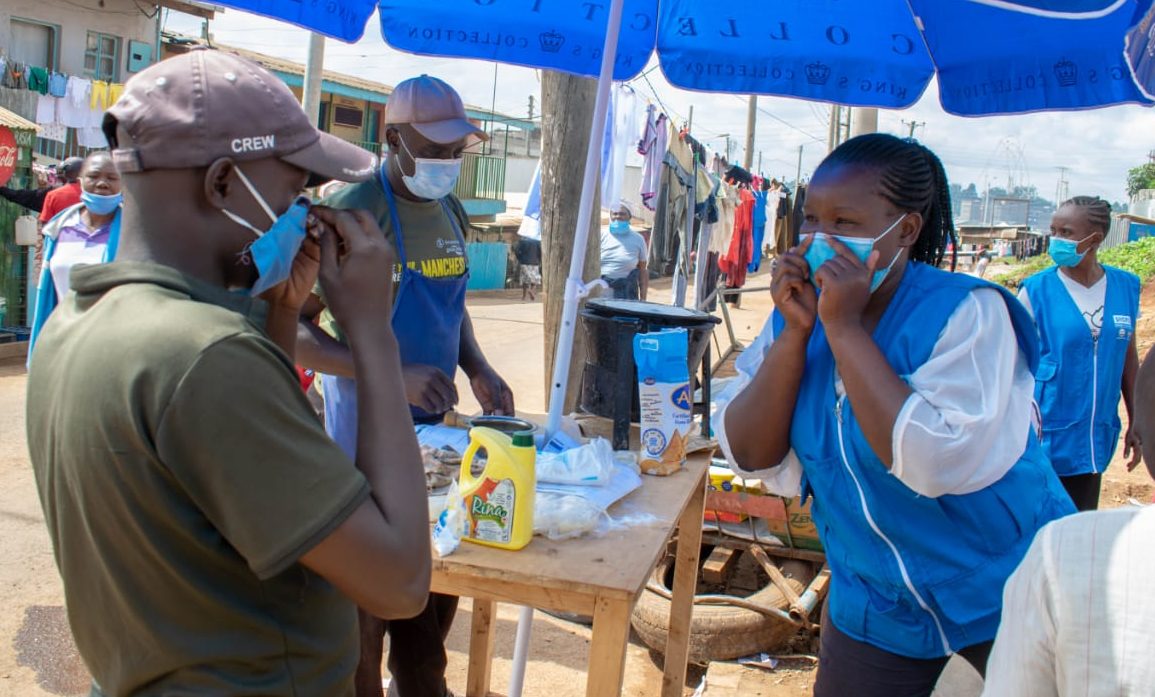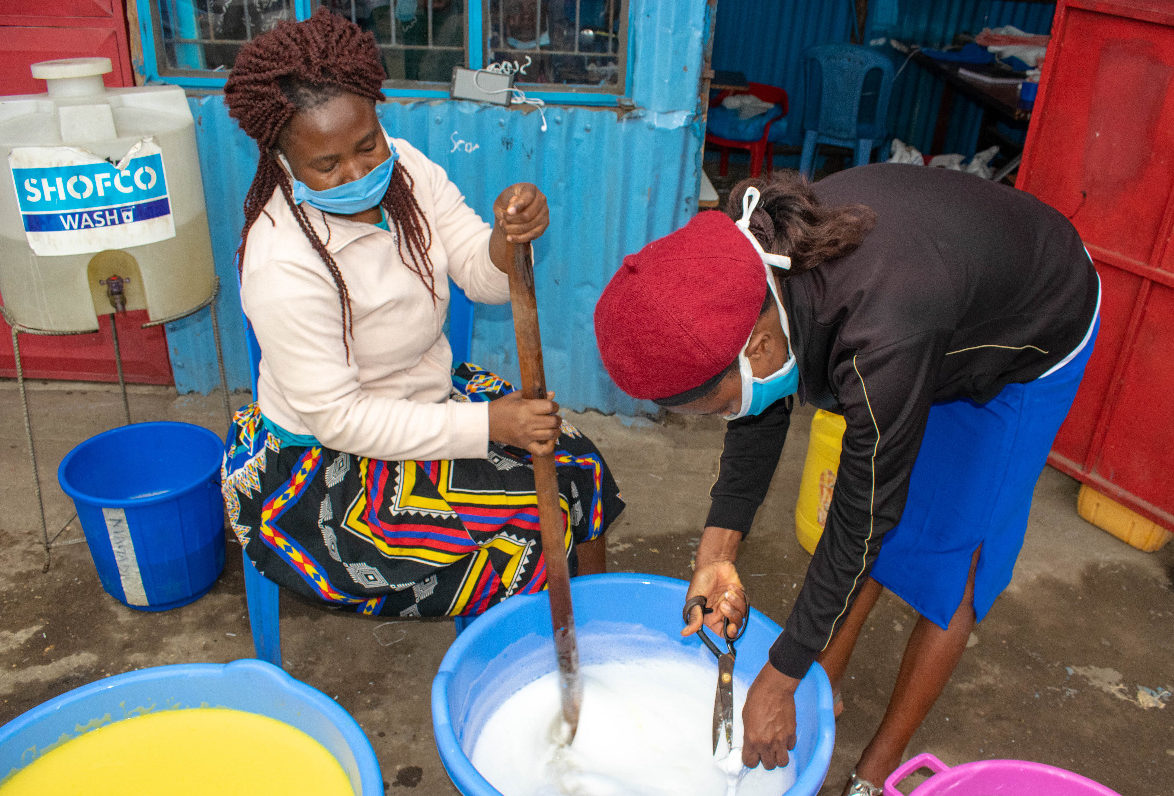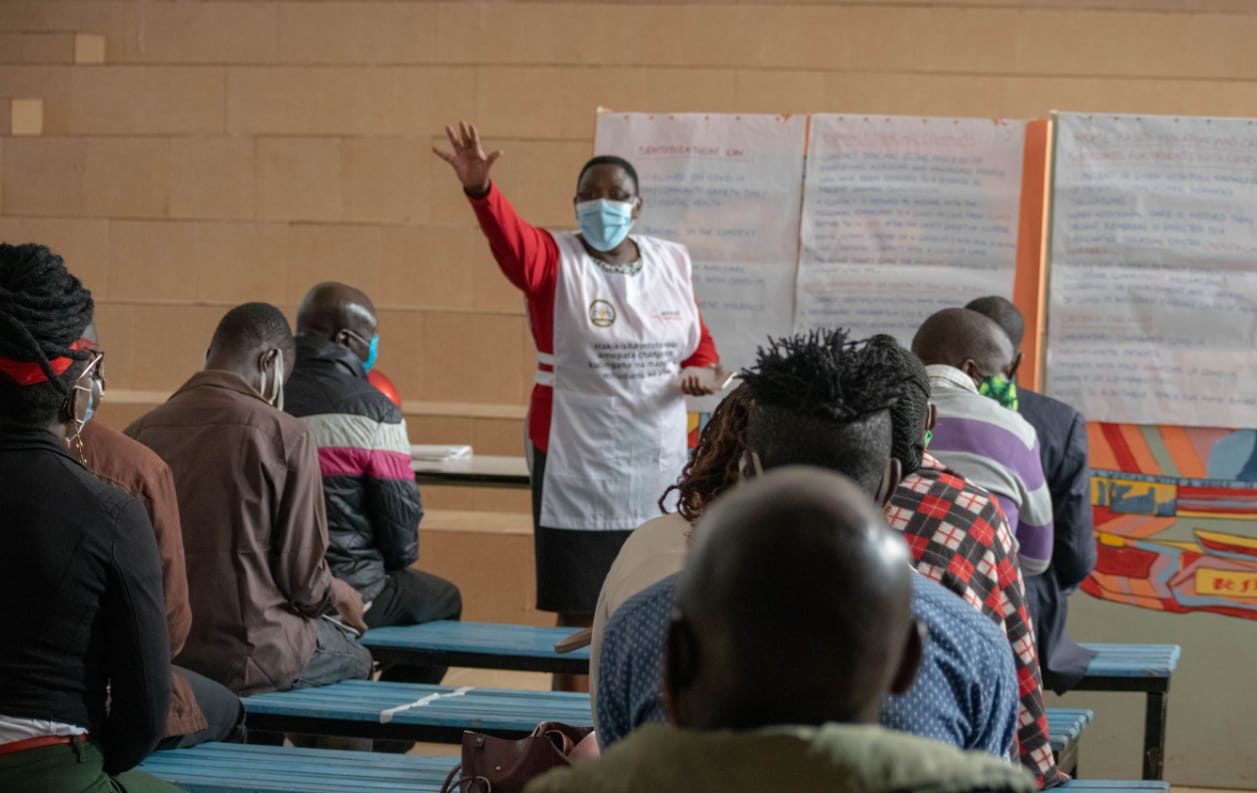
SHOFCO and the Mastercard Foundation have launched a partnership under the Mastercard Foundation COVID-19 Recovery and Resilience Program that is building the resilience of communities in 10 urban slums in Kenya during the COVID-19 pandemic.
The three-month partnership started in mid-May 2020 and has since reached 249,116 households with 807,125 people against a target of 1,350,000 people.
“SHOFCO is on the front lines reaching the communities that are most at-risk for exposure to COVID-19 and hardest hit by the economic fallout from the pandemic. As they literally go door-to-door, household-to-household, person-to-person, they are delivering more than health information, medical services, sanitation supplies, or work opportunities. SHOFCO’s effectiveness is derived from the trust earned from communities, and they are an example for others seeking to work at the grassroots level. True to their name, they are delivering hope, which is just as fundamental to getting us all through this crisis,” said Daniel Hailu, the Regional Head, Eastern and Southern Africa, at the Mastercard Foundation.
The partnership will target 10 of the 14 slums where SHOFCO has a presence including Kibera, Mathare, Mukuru, Korogocho, Kawangware in Nairobi; Bangladesh, Mshomoroni, and Maweni in Mombasa; and Nyalenda and Obunga in Kisumu.
“We are taking the COVID-19 message, temperature screening, soap, and sanitizers to the doors of the communities we serve in 10 slums in Nairobi, Mombasa, and Kisumu cities. We do temperature screenings and referrals of possible COVID-19 cases for further tests in public testing facilities,” said Kennedy Odede, SHOFCO co-founder and CEO.

Ann Lilian, a community health worker, guides a community member on how to wear a mask in Gitadhuru, Mathare urban slum. Photo: Victor Okoth/SHOFCO
The exercise is led by 1,800 community health workers and volunteers drawn from the SHOFCO Urban Network (SUN), SHOFCO’s grassroots advocacy and leadership platform. SHOFCO and the Mastercard Foundation partnered with the Ministry of Health to build the capacity of the community health workers and volunteers to relay the COVID-19 message, identify common COVID-19 symptoms, and conduct temperature screenings.
Through the SHOFCO Women Empowerment Program (SWEP), the program has employed over 100 young women in liquid soap making, sanitizer packaging, and in the creation of community health workers and volunteers’ identification jackets.
Naomi Jambiha, a 31-year-old mother of three is one of the over 100 women who have been making liquid soap for use in SHOFCO’s 303 hand washing stations placed in strategic entry and exit points of slums to keep the virus away.
She says: “When the coronavirus broke out, my husband could not pay most of the bills because people no longer bought the clothes he used to sell. Since May (2020), I have been the breadwinner in our family. I use the money I get here to pay rent, buy food, and even send some to our parents at home. In Huruma, many people lost their jobs due to COVID-19 and others had to go back to their rural homes because they could not pay rent or get money to buy food to eat. We have been able to stay behind because of this soap making at SWEP. We would be suffering now if it were not for this job.”

Naomi Jambiha, right, and Eunice, both members of the SHOFCO Women Empowerment Program, make liquid soap for use in SHOFCOs handwashing stations. Photo: Victor Okoth/SHOFCO
Mildred Achieng, community health worker, says: “Deaths from coronavirus in other countries have scared us so much. I need to see tomorrow. I want to live to tell a story about coronavirus. That is why I do not want it to come to my community. I wake up every day to move around telling my people to practice simple hygiene measures like handwashing, wearing a mask, and avoiding gatherings. When I go to bed every night, I sleep knowing I have helped someone with information that will protect them from the virus.”

A Ministry of Health official from Nairobi City County Government trains community health volunteers before they embark on COVID-19 outreach campaign. Photo: Victor Okoth/SHOFCO
We are responding to the COVID-19 pandemic. As of 13 July, we have established 303 hand washing stations that have been used 22,211,907 times. We have also screened 1,400,000 people for COVID-19 symptoms and distributed 398,768 bar soaps, and 265,942 bottles of hand sanitizers.
